Is There a Statute of Limitations on Personal Injury Cases?
Accidents and injuries can leave a lasting impact. Often, when you or a loved one has been hurt—whether in a car accident or due to medical malpractice—filing a lawsuit may not be at the forefront of your mind. But there’s a ticking clock. In Ontario, personal injury cases operate under specific time limits that dictate how long you have to pursue legal action. This is known as the “statute of limitations.” It’s essential to understand this concept, especially if you’re considering filing a personal injury claim.
In this post, we’ll take a closer look at the statute of limitations for personal injury claims in Ontario, the exceptions that may apply, and why it’s vital to act promptly if you’ve been injured due to someone else’s negligence. If you’re unsure of your rights, consulting with an Ottawa personal injury lawyer can help clarify your legal options.
What Is the Statute of Limitations?
The Ontario Limitations Act (OLA) sets time limits, or “limitation periods,” for filing personal injury lawsuits. If you miss this deadline, the court will likely dismiss your claim, meaning you lose the opportunity to seek compensation for the injuries sustained, medical bills, lost wages, and other losses tied to the accident.
The basic limitation period for most personal injury cases in Ontario is two years from the date the injury occurred. This is the standard for claims arising from events such as car accidents, slip-and-fall injuries, and medical malpractice. But the clock doesn’t always start ticking the moment the accident happens. Sometimes, the injury is not immediately apparent, or the full impact of the injury may take time to reveal itself. This is where the “discoverability rule” comes into play.
The Discoverability Rule: When You Realize You’ve Been Injured
The Limitations Act recognizes that some injuries are not immediately obvious. For example, if you were in a car accident but only later discovered that you had sustained a serious spinal injury, the limitation period may begin from the date when you “ought to have known” about the injury. This concept is referred to as the “discoverability” principle, allowing flexibility in cases where symptoms are delayed or hard to detect. However, determining when a “reasonable person” would have known about their injury can be subjective and varies depending on the specific circumstances.
In Ontario, this means the two-year countdown may not start until you knew or should have known about your injury. This is why it’s so important to keep an eye on your health after an accident, even if you don’t think you’re injured at first.
Exceptions to the Statute of Limitations
While the two-year limitation period applies to most personal injury claims, certain situations can affect when and how the clock starts ticking. Below are some important exceptions where the statute of limitations may be extended or operate differently:
1. Minors and Incapacitated Individuals
For injury victims who are minors (under 18 years old) or individuals who were incapacitated at the time of the injury, the limitation period doesn’t start until they turn 18 or regain capacity. This provides extra time for vulnerable groups to seek legal recourse. For minors, this effectively means that they could have until age 20 to file a personal injury lawsuit.
2. Claims Against Municipalities
If your personal injury claim involves a municipality—for example, in a slip-and-fall case on a poorly maintained sidewalk or park—the law is different. Under Ontario law, you must provide written notice to the municipality within 10 days of the accident. While you still have two years to file the actual lawsuit, failure to provide this notice can severely limit your ability to seek compensation. Municipalities often maintain their properties with this in mind, which makes the time limits shorter and much stricter.
3. Claims Involving Fraud or Concealment
In situations where the responsible party engaged in fraud or intentionally concealed information related to the injury, the limitation period may be extended. This allows victims to pursue legal action once the deception has been uncovered.
Why It’s Important to Act Quickly
Even with some flexibility in the law, time is not on your side when it comes to filing a personal injury lawsuit. The two-year limitation period can pass quickly, especially if you’re recovering from serious injuries or dealing with the aftermath of the incident. Additionally, evidence can degrade or disappear with time. Medical records might be harder to obtain, witnesses can forget details, and physical evidence could be lost.
This is why accident victims are encouraged to act promptly and seek legal counsel as soon as possible after an injury.
What Happens If You Miss the Deadline?
If the limitation period passes and you haven’t filed a claim, you will likely be barred from pursuing a personal injury lawsuit. Courts are generally strict about adhering to these deadlines, and missing the two-year deadline could mean giving up your right to compensation.
However, exceptions do exist, as mentioned above. If you’re unsure whether your case qualifies for an extension or if you believe your injury falls under one of the exceptions, it’s vital to consult with an Ottawa personal injury lawyer. They can provide legal advice and assess whether you still have a viable claim under the limitations act.
How McNally Gervan Can Help
At McNally Gervan LLP, we understand that the aftermath of an accident can be overwhelming. We’ve worked with countless clients throughout Ontario, helping them navigate the complexities of personal injury legal proceedings law and ensuring they file their claims within the legal time limits.
Our team of Ottawa car accident lawyers and personal injury lawyers is here to guide you through the claims process. We know the importance of acting within the limitation periods set by the legal framework, and we’re committed to helping you pursue compensation for your injuries. Whether your case involves a car accident, a slip-and-fall, or medical malpractice claims, our legal team has the experience and dedication to fight for your rightful compensation.
Don’t let time stand in the way of justice.
If you’ve been injured in an accident, contact us today for a free consultation with an experienced personal injury lawyer. Together, we’ll explore your options, protect your rights, and ensure you don’t miss the chance to pursue the compensation you’re entitled to through a successful personal injury claim.






Follow Us